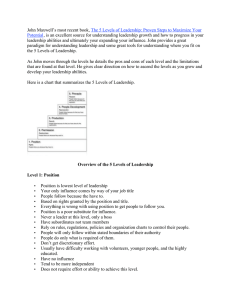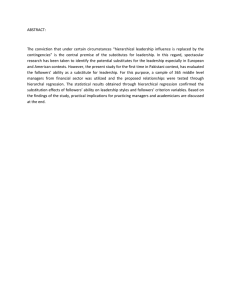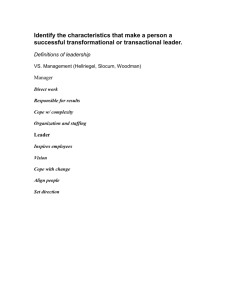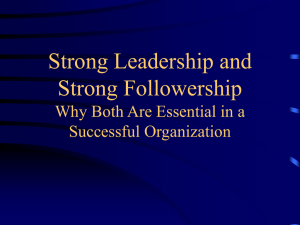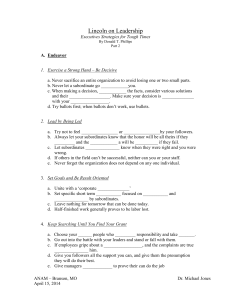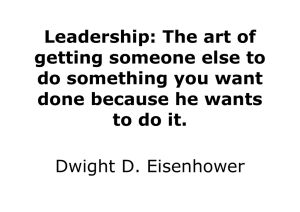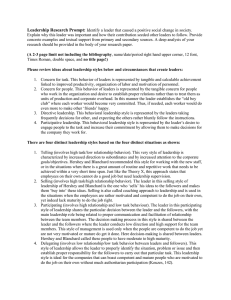The Contrarian`s Guide to Leadership-vito
advertisement
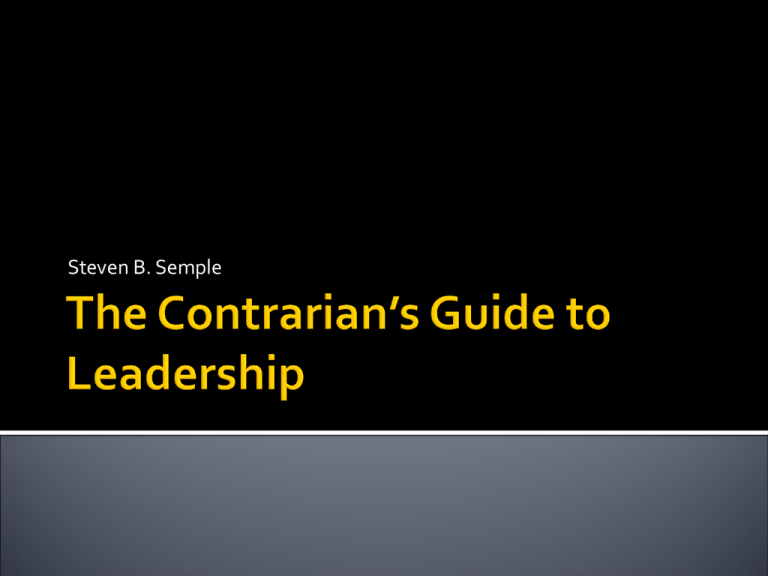
Steven B. Semple Don’t form an opinion until you have heard all relevant facts or until circumstances force you to form one. Allow your mind to contemplate truly outrageous ideas and only subsequently apply the constraints of practicality, legality, cost, time and ethics. If you cannot do these things, you are a dinosaur whose followers would be better off without you. Your inner circle of advisers should be founded on mutual understanding and trust. Seek line officers to be part of this group. Heisenberg Uncertainty Principle Listening Gray: do not immediately offer a definitive response. Do not rush to a conclusion. Practice “open communication.” A leader should pay close attention to experts but never take them too seriously, and never trust them completely. Seek out “Deep Specialists” Einstein: “A lot of what can be counted doesn’t count, and a lot of what counts can’t be counted.” Maintain your intellectual independence. Go where your competitors don’t go and read what they don’t read. One truly original idea is worth a hundred regurgitations of conventional wisdom. Feeds your intellectual independence. Never make a decision that can reasonably be delegated to a subordinate. Helps you deal with important decisions and save time to make them. Helps to develop your people. Never make a decision today that can reasonably be put off to tomorrow. Harry Truman’s “artful procrastination.” Reserve for yourself decisions on hiring, compensating, motivating, molding, assessing and firing of subordinates. Make those decisions that have the greatest impact on the organization. Solve disputes between subordinates quickly. Listen to your “inner voice.” Machiavelli: “It is better for a leader to be feared than loved.” People are more likely to take advantage of a leader who is only loved than one who is feared. The failure of a leader to enforce the rules out of a desire to incur the affection of followers can bring that leader to ruin. Be careful not to humiliate those you punish. The challenge for the leader is to find ways to bring out the best in followers (and oneself) while minimizing the worst. Making moral judgments. Once you know it, keep it to yourself or your adversaries will use it against you. A delicate balancing act: Develop and hold your own moral convictions, while being as open as possible to the strongly held moral beliefs of others. Abraham Lincoln’s initial views on slavery. George Washington’s refusal to seek another presidential term. You should be the first assistant to the people who work for you. Teddy Roosevelt: “The best executive is the one who recruits the most competent men around, tells them what he wants done, and then gets out of their way so they can do it.” Surround yourself with people whose skills make up for your shortcomings. No “yes men” or sycophants. Follow Lincoln’s example: Team of Rivals Protect the line staff from your support staff. Their purpose is to support them, not bully them. “A man has to shoot his own horse, because he owes it to the horse.” Every senior subordinate deserves a complete and frank evaluation by the leader at least once a year. Telling compelling stories is one of the most powerful tools there is for establishing a close bond with followers and for inculcating your vision among them. If you wish to really inspire your followers and touch them at their emotional core, you must speak to them. The sweet taste of victory in a tough competition. Creating a sense among followers that they are under attack from outside sources, that they must stick together fight like hell to survive. Better incentives than money. Leaders don’t run organizations. Leaders lead individual followers, who collectively give motion and substance to the organization that they head. “Many men want to be president, but very few want to do president.” If you don’t want to do the work, don’t seek or take the job. Recipe for unhappiness: becoming a organizational leader and finding out that you really don’t want to do the work that the position requires. Kissing the Frog: Dealing with “Administrivia.” 70 percent of the Job. Never, ever lie to the Media. Anything worth doing at all is worth doing just well enough.
